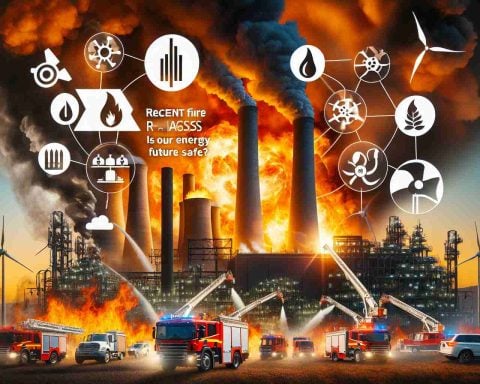Revamping Local Production
Hyundai Motor India Limited (HMIL) is on an ambitious path, committing to localize over 1,200 components and electric vehicle battery packs. This initiative was highlighted at the Bharat Mobility Expo held in New Delhi, showcasing the company’s dedication to strengthen its manufacturing presence in India.
With a remarkable 92% localization level achieved thus far, HMIL has partnered with Mobis India to inaugurate a new battery pack assembly facility at its factory in Sriperumbudur. The first vehicle to benefit from this localized production is the Hyundai CRETA, featuring battery packs assembled on-site.
The localization strategy has already led to substantial foreign exchange savings amounting to $672 million since 2019, significantly bolstering the local economy and generating over 1,400 direct employment opportunities. Currently, around 194 suppliers are collaborating with HMIL to produce an impressive 1,238 components at their Chennai facility.
Furthermore, the new battery assembly plant is anticipated to have an annual capacity of 75,000 units, producing a variety of battery types, including advanced Lithium-Nickel-Manganese-Cobalt Oxide and Lithium-Iron-Phosphate options. This move not only enhances battery cost efficiency but also improves supply chain reliability for Hyundai’s growing range of electric vehicles produced in India.
In its quest for further localization, HMIL plans to deepen partnerships with local suppliers, reinforcing its commitment to indigenization at its recently acquired site in Talegaon, Maharashtra.
Revamping Local Production and Its Broader Implications
Hyundai Motor India Limited’s (HMIL) strategy to enhance local production resonates beyond the automotive sector, influencing societal dynamics and economic frameworks. By localizing production, HMIL fosters greater job security and economic resilience within India, essential for a nation where unemployment remains a pressing issue. The manufacturing sector has proven pivotal in uplifting communities, promoting not just direct employment but also ancillary businesses ranging from logistics to parts manufacturing.
In terms of culture, as companies invest in local production, it cultivates a sense of national pride and identity. Consumers increasingly favor local goods, driven by a burgeoning awareness of sustainability and environmental stewardship. Hyundai’s initiative aligns with larger movements toward green technology, especially the shift towards electric vehicles — a sector rooted in reducing carbon emissions and enhancing urban air quality.
Additionally, environmental ramifications are noteworthy. By establishing localized supply chains, HMIL reduces its carbon footprint associated with transportation and logistics, significantly contributing to pollution reduction. Future trends indicate that localization will be a hallmark of the automotive industry, influencing global manufacturing strategies as companies strive for sustainability and resilience amid geopolitical tensions.
The long-term significance of HMIL’s localization efforts may well redefine regional economic landscapes, positioning India as a global manufacturing hub, particularly in the emerging electric vehicle market, which is projected to reach $1 trillion by 2030.
Transforming the Future: Hyundai Motor India’s Bold Localization Strategy
Revamping Local Production
Hyundai Motor India Limited (HMIL) is driving a significant transformation in the local automotive landscape with its ambitious commitment to localize over 1,200 components and electric vehicle (EV) battery packs. This strategy, discussed at the Bharat Mobility Expo in New Delhi, reflects HMIL’s intent to enhance its manufacturing footprint in India, emphasizing a move towards greater self-sufficiency.
# Localization Achievements
With an impressive 92% localization level already in place, HMIL has teamed up with Mobis India to inaugurate a state-of-the-art battery pack assembly facility at its Sriperumbudur manufacturing plant. The Hyundai CRETA will be the first vehicle to feature battery packs assembled on this site, showcasing the fruits of this localized production effort.
# Economic Impact
The drive for localization has proven economically beneficial, leading to foreign exchange savings of $672 million since 2019. This initiative not only supports the Indian economy but also creates over 1,400 direct employment opportunities. HMIL currently collaborates with about 194 suppliers to produce a substantial 1,238 components at its Chennai facility, fostering local industry growth.
# Battery Assembly Plant Capabilities
The newly inaugurated battery assembly plant is poised to deliver an annual capacity of 75,000 units, producing a diverse range of battery types, including advanced Lithium-Nickel-Manganese-Cobalt Oxide and Lithium-Iron-Phosphate batteries. This move is set to enhance cost efficiency and improve the reliability of the supply chain, catering to Hyundai’s expanding inventory of electric vehicles in India.
# Future Plans and Sustainability
Looking forward, HMIL aims to deepen its engagement with local suppliers as part of its strategy for further localization. The company has also acquired a site in Talegaon, Maharashtra, which shows its commitment to indigenization. This locality-focused strategy not only promotes sustainability but also aligns with global trends towards reducing reliance on imports and enhancing local manufacturing capabilities.
# Key Insights
– Localization Level: 92% achieved, with a target of over 1,200 components.
– Collaboration with Suppliers: Approximately 194 suppliers engaged, producing 1,238 components in Chennai.
– Economic Savings: $672 million in foreign exchange savings since 2019.
– New Battery Facility Capacity: Expected to produce 75,000 battery packs annually.
– Commitment to Local Manufacturing: Focus on deepening supplier partnerships at newly acquired sites.
As HMIL continues to innovate and expand its local operations, the company sets a benchmark for other automotive manufacturers in India to pursue similar paths, thereby enhancing domestic capabilities and contributing to a robust automotive ecosystem.
For more information, visit Hyundai Motor India.









